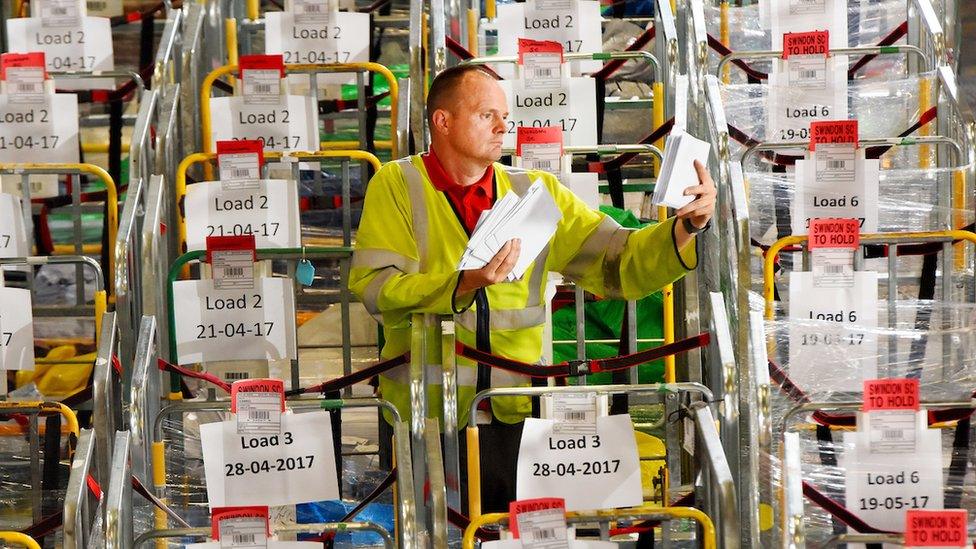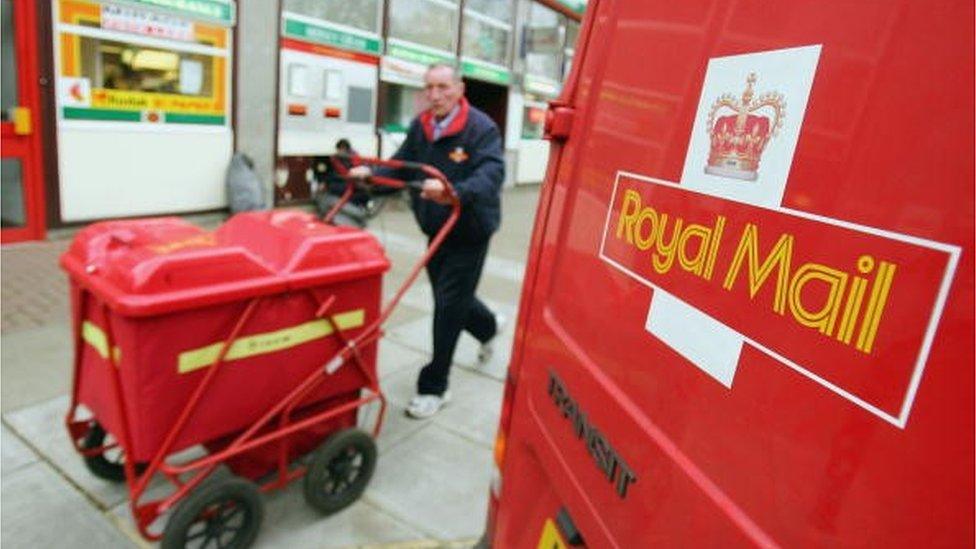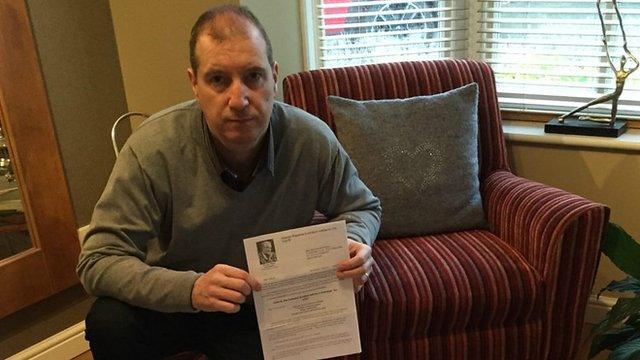Royal Mail halts three million scam letters
- Published
- comments

Hoards of scam letters are being seized before reaching the letterboxes of vulnerable potential victims, according to Royal Mail.
The delivery service received stinging criticism from government and campaigners after the Royal Mail logo was found on scam letters.
It prompted a series of changes which the service said had halted three million letters in just over a year.
Fake lotteries and bogus clairvoyants have used mass mail drops in the past.
The BBC has reported cases in which people have lost tens of thousands of pounds to these postal scammers.
Impounding letters
An investigation by the Daily Mail in 2016 alleged that scammers paid companies to print their scam letters in bulk.
If printed abroad, the letters were then taken to the UK where firms sorted and mass transported them to Royal Mail, which made the final delivery to people's homes. The Royal Mail logo was printed on the envelopes.
The issue led Royal Mail to be hauled before a government minister.
The service said it faced difficulties owing to the law which made it an offence to open postal items to look at the contents. Once envelopes were sealed, neither Royal Mail nor the intermediary companies delivering the mail to Royal Mail for final delivery were permitted to open them and assess the content, it said.
However, staff were trained to spot potential scam letters, and a series of new initiatives - including an industry-wide code of practice - have been launched since 2016.

You may also be interested in:

Changes to terms and conditions governing bulk mail contracts in March 2017 meant Royal Mail could follow up on solid intelligence by refusing to carry mail suspected to be fraudulent.
The next month it started to contact, by Special Delivery, households receiving high volumes of scam mail, and impounded scam letters at its distribution centres before it reached the customers' letterboxes.
"We are committed to doing everything we can to stop this fraudulent material from reaching UK households," said Stephen Agar, managing director of letters at Royal Mail.
"We continue to deploy a range of different initiatives to keep one step ahead of the scammers."
The initiative does not cover electronic mail, and many con-artists have turned to email and social media to blitz potential victims with similar scams.
- Published13 September 2017

- Published12 February 2017

- Published10 October 2016

- Published10 October 2016
